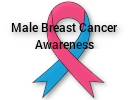How can Blue Cross and Blue Shield help?
Having a breast cancer diagnosis can be overwhelming. On top of understanding and processing the diagnosis, knowing what to do next can seem like too much to think about.
The first thing you can do as a Blue Cross and Blue Shield member is to call the customer service number on your member ID card. One phone call can help determine what resources and help are available.
Blue Cross and Blue Shield has a team of professionals to help you on your breast cancer recovery journey. Specialized case managers work with you to holistically manage your needs.
A team of registered nurses and social workers provide support to help you get the best care. They can be a lifeline to support services, including:
- Help with your feelings and emotions
- Finding resources for a wig
- Getting a dietitian to help you with your new nutrition needs
- Understanding your treatment options
- Referrals to Blue Distinction doctors, for example if you need a second opinion
- Help with planning for your treatment and recovery
- Resources to assist you and your family, such as child care, transportation, or finding affordable medications
Case managers also work with our multi-disciplinary teams of doctors and pharmacists to review recommended treatments and medicines.
Case managers also work behind the scenes to coordinate care among your doctors.
These reviews can help make sure that there will not be any harmful interactions with other medicines you’re taking. And they can find food restrictions that need to be followed to prevent interference with a medicine.
But the role of a case manager isn’t just about coordinating medical care. Their goal is to help you understand what’s ahead, provide answers to your medical questions, and guide you through the journey ahead with compassion.
Did you know?
About 1 in 8 American women (about 12 percent) will develop invasive breast cancer over the course of her lifetime. And this year alone, over 230,000 new cases of invasive breast cancer are expected to be diagnosed in women in the United States.
So what happens when you or your loved one is part of that 12 percent? Breast cancer treatment is a journey. You’ll need help and resources along the way.
Sharing the News About Your Diagnosis
Finding out you have cancer can put you and your family on an emotional rollercoaster. Although it’s easy to pronounce, if you’ve just been diagnosed, cancer can be the hardest word to say.
But talking with friends and family is healthy. It can help you cope and relieve feelings of isolation and frustration. When you are ready, prepare to tell your loved ones about the diagnosis.
Keep in mind that cancer affects the whole family, and how family members respond may surprise you. Remember, people’s reactions don’t necessarily reflect their feelings toward you. They are dealing with their own fears about the situation. Communicating openly can help them overcome their fears.
Try the following advice when it’s time to break the news.
- Plan ahead. Most people will have questions about your prognosis or next steps. Think about how much you want to share — it’s up to you. There may be topics you feel uncomfortable discussing, such as treatment choices. Think about how to change the subject if something you don’t want to talk about comes up.
- With children, be gentle but honest. They’ll sense something is wrong and should hear about your cancer from you. Be calm and assure them that they’ll be cared for.
- Use words that are comfortable for you. There’s no one right way to discuss your disease.
- Get help. Make a list of people you want to tell personally. Then ask a family member or trusted friend to talk with others.
Taking Good Care of You
Here are some steps you can take to help you cope better.
- Take care of yourself. Get enough rest, eat a healthy diet and stay physically active.
- Not all parts of your life need to be put on hold. Try to keep up hobbies and other things you enjoy.
- Get help from your doctor if you feel anxious, hopeless or depressed for more than two weeks.
- Find quiet time for reflection and relaxation.
Beginning Treatment
Making decisions about starting your treatment may seem overwhelming. And cancer treatments offer numerous alternatives, so decisions may not be straightforward. Understanding your treatment options can help you feel more in control and less worried about the road ahead.
Learn as much as you can about your cancer and treatment options. Being actively involved in the decision-making can help you better understand your treatment. You’ll feel more confident and satisfied with your choices. Research also shows that participating in treatment decisions is associated with better outcomes.
Here’s how to start:
- Find someone who is willing to go with you to your appointments and help you take notes. It is normal to feel overwhelmed, and having a partner you trust there can help you keep all of the new information straight in your head.
- Get a second opinion. It may provide more information about your diagnosis and treatment options.
- Get the facts about the kind of cancer you have. Ask for written material and question your doctor and others on your health care team. Be sure to make a list of questions before your appointments and write down the answers. Reliable websites like the National Cancer Institute, MedlinePlus and Cancer.net can also provide helpful information.
- Communicate with your doctor about the goal for your treatment and your role in it. Is the purpose to cure, control or treat symptoms? You are an important part of your cancer care team. Don’t be afraid to ask questions about treatment choices so that you clearly understand your options.
- Seek support from family, friends and other people who have experienced cancer. Ask your doctor about resources that can help you cope with your illness and treatment. Ask about support groups, counseling and other services.
- Keep track of medical records, test results, your own notes and any other related paperwork. Create a system to help you stay organized. Having all the information you need in order and readily available can help you deal more easily with your cancer care team.
How has your community helped you on your journey? Share your story in the Comments.
Last update: 10/9/2017

